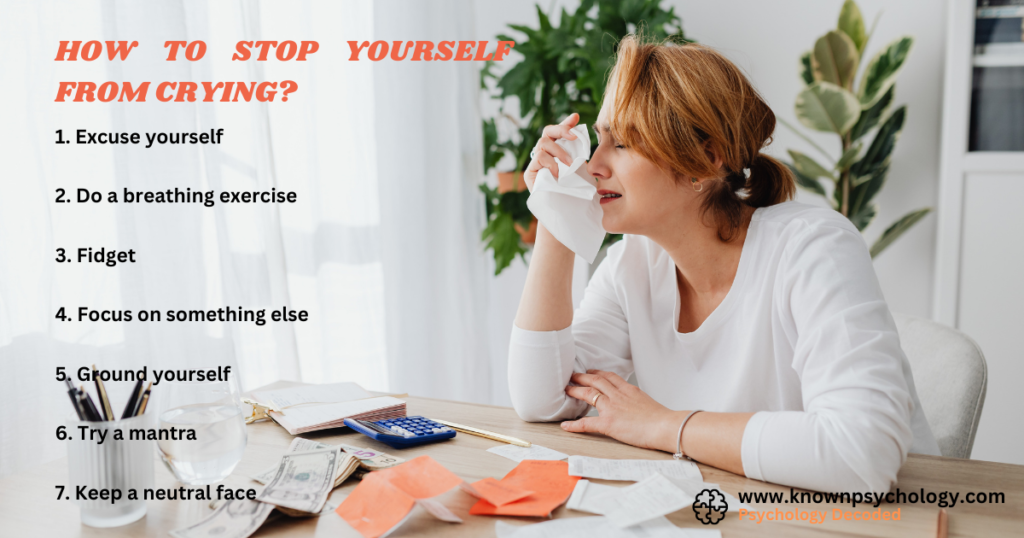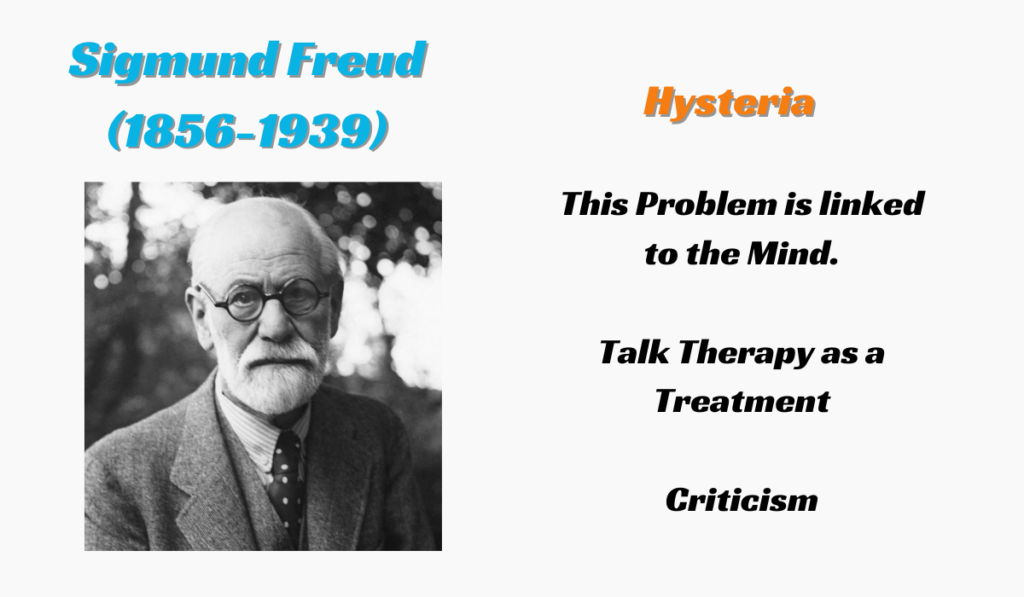
First thing, cry in normal and way to release your emotion. it can helps you and reduce your stress. But if it happens at inconvenient times or you feel self-conscious about it, here’s what you can do and how to stop yourself from crying!
Crying does not indicate weakness, contrary to what you may have heard. Indeed, much power is shown when one is ready to sit with and observe one’s own feelings. Sometimes it’s good to let out your emotions by crying.
Tears, however, might seem like a bother at some times and places. Trying to talk yourself out of crying at these inconvenient times could make you feel even more helpless.
How to stop yourself from crying at work, at school, or when you’re angry, there are many strategies to soothe your nervous system and help you regulate your emotions.
Top 7 Tips on how to Stop Yourself from Crying
1. Excuse yourself
Try getting up and going to a different room where you can be alone when you feel the familiar lump in your throat or tears beginning to form in your eyes.
What about this: “Could we take a short break?” I should probably have a drink of water.
2. Do a breathing exercise
Crying is a natural defence mechanism that your body employs when you’re under a lot of stress.
This “fight, flight, or freeze” response may be promptly addressed by taking 8 to 10 deep belly breaths. You will experience a sense of calmness when your parasympathetic nervous system (the “rest and digest” mode) is activated.
A wide variety of breathing exercises are available. Find out which one suits you best by trying a few.
3. Fidget
Perhaps you can rein in your tears if you engage your hands in a creative activity. Subtle yet powerful, fidgeting with a little item may help you remain grounded and control your emotions.
Take a look at anything that catches your eye and try to concentrate on it, such a:
- coin
- ring
- hair clip
- smooth shell or stone
- something similar to a fidget spinner
- beadwork, like mala beads
- stress ball
4. Focus on something else
Distracting yourself from whatever is triggering your emotional distress could help you cope. Instead of reading the movie screen, read the snack’s label.
If you’re feeling emotionally overwhelmed while someone is talking to you, try to picture something good, like the smile on your dog’s face when you get home after a long day, or a humorous scene from a programme you just saw.
5. Ground yourself
An interruption to your mental cycle may sometimes be achieved by physical grounding techniques. There is one option for you to consider:
- gnaw on a piece of ice
- gently brush across your teeth
- place a hot drink in the palms of your hands
- clench your fist and firmly (yet gently) push your nails on your flesh.
- squeeze the area where your index finger and thumb meet
6. Try a mantra
On of the most effective technique on how to stop yourself from crying, If you’re feeling anxious, try telling yourself a positive affirmation silently or aloud.
Such as, “I manage my emotions well,” or “This is difficult, but it will pass quickly.”
7. Keep a neutral face
If the tears are making you feel self-conscious:
- arched your neck
- widen your gaze
- hold off on blinking for a second
- Embrace the beauty of shedding tears.
- Contract your face muscles.
- pay attention to the breath
What next you should do to Stop Yourself from Crying in Future
Weeping is both an emotional reaction and a kind of feedback. If you find yourself crying often, it may be a sign that something isn’t right in your life.
Reach out to a professional
Talking to a mental health expert could help you figure out why you’re weeping all the time, whether it’s for no apparent cause, in fits of uncontrollable sobbing, or both.
You may find it difficult to control your emotions if you suffer from any of the following conditions:
- attention deficit hyperactivity disorder (ADHD)
- anxiety disorders
- borderline personality disorder (BPD)
- bipolar disorder
- complex PTSD (C-PTSD)
- complicated grief
- depression
- histrionic personality disorder (HPD)
- post-traumatic stress disorder (PTSD)
- pseudobulbar affect (PBA)
In order to get to the bottom of things, it’s important to consult a caring mental health expert for a diagnosis. Find a nearby clinician with the aid of our search tools.
Take up journaling
A trial in 2018 Trusted Source suggests that journaling could help combat emotional distress.
You may find it useful to set a timer and do a stream of consciousness, where you write out whatever you’re thinking. If you’d prefer structure, we have 64 prompts you can try.
Get more sleep
Lack of sleep may make it more difficult to control one’s emotions. Get eight hours of sleep every night if you can.
Change your circumstances
Find out where you’re shedding the most tears. Does a certain member of the family often bring out your worst emotions? It may be time to set some clear limits if this continues.
What about sobbing a lot on the job? So that your physical, mental, and spiritual selves can all find harmony again, maybe it’s a hint that it’s time to move on to something else.
A Note from Known_Psychology
While it’s acceptable to feel uncomfortable sometimes, crying is normal. If it’s occurring more often than you’d want, it’s okay to make changes to your lifestyle and mental health a priority. This blog can help you how to stop yourself from crying when you don’t want it. But, when you cry, just own it. Clearly, you are experiencing a really human moment, you know. Hold on a second. Put a tissue over your eyes, take a deep breath, and go on. Saying “no problem at all” is probably the way to go when you’re in a group. Grab a Kleenex from here. We are, after all, fallible mortals.


